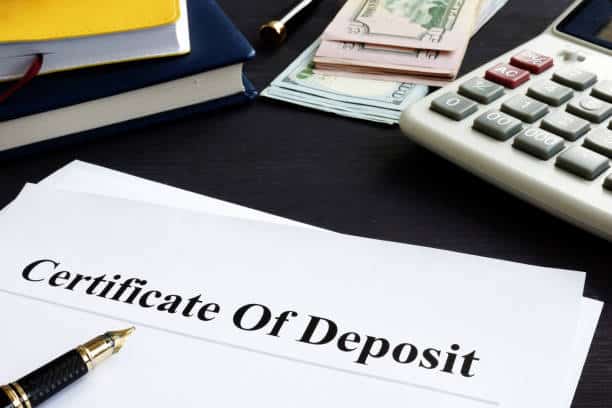Investing guide for expats living in the US part 1 – that will be the topic of today’s article.
Nothing written here should be considered as financial advice, nor a solicitation to invest.
For any questions, or if you are looking to invest as an expat, you can contact me using this form, or via the WhatsApp function below.
Introduction
In this article, we will cover all the aspects related to investment options, tips for investing, etc., and this information is specifically targeted towards foreigners and expats who want to invest in the US.
Note: This article is targeted towards expats of foreign countries living in the United States and not to be confused with US expats living abroad.
High-yielding savings accounts:

Nowadays, there are a lot of online savings accounts as well as cash management accounts that provide higher returns compared to those offered with traditional bank accounts.
Some brokerage firms offer hybrid savings and checking accounts, which offer good interest rates and provide checkbooks as well as debit cards.
As we already know, savings accounts happen to be a conventional method of short-term savings, where you can access your money.
However, some savings accounts might have a withdrawal limit, which means you can only withdraw money a few times a month depending on your account provider.
Nonetheless, there are some cash management accounts, which are considered to be more flexible and offer higher interest rates in certain circumstances.
The USA Patriot Act has made the process of opening accounts complex for foreigners or involved with any other monetary transactions in the US.
In general, the documentation required for opening an account might be more for non-residents or foreigners when compared to citizens or permanent residents.
Regardless of a person’s residency status, any person who wishes to open a bank account will be required to provide a Social Security Number or an individual taxpayer identification number.
Since most people who are living as expats in the US are there for employment purposes and intend to live there for a while, they might already have a social security number.
While some residents or non-residents may not have a social security number, they could just file a form W-7 with the US Internal Revenue Service (IRS) and obtain a taxpayer identification number (TIN).
In general, most traditional brick-and-mortar banks require non-residents to visit their branch in person so that they can have a bank account.
Even when the application process is done online, the individual would still be asked to visit a branch to complete the application.
Additionally, some banks require initial deposits ($5 to $100 or more) and might even impose certain restrictions for wire transfers or ask you for proof of funds.
Some financial institutions allow individuals to open an account in the US even if they are not able to provide SSN or other forms of IDs required by most banks.
However, these banks might require some other type of documents, which makes the process of opening a bank account easy for non-US citizens.
The list of accounts offered by banks or financial institutions that are specialized for non-US citizens in the US who don’t have a social security number are as follows:
- Bank of America (Advantage Savings Account)
- Wells Fargo (Way2Save® Savings Account)
- Fifth Third Bank (Momentum Savings Account)
- KeyBank (Savings Account)
- Santander® Bank (Savings Account)
- Hope Credit Union (Savings Account)
- River City Credit Union (Savings Account)
- Guadalupe Credit Union (Savings Account)
- Tucoemas Credit Union (Regular Savings Account)
- JetStream Credit Union (Savings Account)
However, almost all of these banks and credit unions would still need you to provide an ITIN number among other types of documents required.
Instead of these, expats can always opt for offshore bank accounts, which makes it easy for managing their money, but it should be taken into consideration that offshore bank accounts require larger deposits.
Certificates of Deposit:

The Certificates of Deposit are savings accounts that are insured by the federal government and offer a fixed interest rate for a specific period of time.
If you opt for an early withdrawal, then you might have to pay some additional charges imposed by the financial institution that offered it.
Whether or not an expat can get access to certificates of deposit depends on the provider as some financial institutions may or may not offer these to foreign investors or non-residents.
Bonds/Notes/Bills:
From the information that we have gathered, there are some specific hurdles for non-citizens to buy Treasury Bonds, Treasury Bills, or Treasury notes.
There are restrictions for buying these securities as long as you have an ITIN number (if there is no SSN).
Additionally, if you wish to buy these, then you must be willing to fill out an IRS form W-8 (Certificate of Foreign Status) every time you buy any of these.
Once you have a Treasury Direct account, you can purchase these securities without having to pay extra fees or commissions.
The purchases of these securities can only be done with the help of US Dollars, and therefore, you need to fund your Treasury Direct account with dollars.
Some countries have a tax treaty with the United States, and if you are from such a country, then you won’t be required to pay a withholding tax, otherwise, you are subject to a withholding tax from the interest you obtain.
The process of selling a bond becomes complex if any bondholder wants to sell it before the completion of the maturity period.
This is usually the cheapest option for purchasing these debt instruments, but nevertheless, you can even purchase these from a full-service bank or a brokerage firm in your home country.
Most brokers offer treasury ETFs which offer you exposure towards these debt instruments. Vanguard and iShares are known to have some of the best Treasury ETFs.
While discussing bonds, we should also talk about corporate bonds. Corporate bonds are almost the same as government bonds, but these are not backed by the government.
As they are not backed by the government, they tend to be a bit riskier and high-yield bonds (such as junk bonds) are too risky that the risk may be similar to that of stocks.
Corporate bonds are issued by large companies and can be acquired with the help of an investment broker.
Investment Funds:

In the United States, there are complications for foreigners or expats to invest in US-based investment funds.
While living as an expat in the United States, individuals are able to invest in mutual funds with the help of an American brokerage or a brokerage firm in their home country.
However, the conditions (as usual) are that the investors need to register with the Internal Revenue Service, which may not be necessary with the brokers in their home country.
In most countries, brokerages and other financial institutions are registered with the US Securities and Exchange Commission so as to allow investors to purchase securities directly.
However, individuals are allowed to open accounts with local brokerages in the US even when they are abroad.
However, these people might be required to submit all the necessary documentation or even be necessitated to visit a physical branch.
Since the Patriot Act came into effect, all the investors are required to provide all the necessary proofs to financial institutions before they get accepted.
Even when some institutions have some individual policies, the Patriot Act still needs the investors to submit proof of their identity (Photo ID mostly), such as their passport.
But with most brokerages, individuals who are not residents of the United States must visit the institution in person and confirm their identity for getting access to an account.
Unless an individual is a permanent resident or citizen in the United States, they must complete an IRS Form W-8 BEN (certificate of foreign status), which can be done with the help of the broker they choose.
Any foreign individual (who is not resident in the US) can apply for a tax exemption from the American withholding tax applicable on their returns, and for this, they should submit a form to IRS.
However, IRS may deny these applications if the individual spends a considerable amount of time in the United States (as per the tax resident status).
While investing in Investment funds, you must get to know about all the necessary information such as taxes, availability of funds, brokerage costs, and finally, you must choose an investment fund that suits your financial goals.
For example, people who wish to save for their retirement or wish to gain returns by investing for a longer period can benefit from mutual funds. By doing so, they even get diversified portfolios that consist of various stocks.
For more general information on various types of investment funds, you can check out these articles:
Real Estate:

Whether you buy a property for flipping it (selling for a higher price) or obtaining rental income or even for using it as a residence, investments in real estate are one of the lucrative forms of investment.
In the United States, not just the permanent residents and citizens, but the expats and even foreigners are able to buy property, as there are no citizenship requirements.
In most situations, foreigners can even become eligible for a mortgage after meeting certain criteria.
Nevertheless, the tax scenario is complex compared to that of citizens and permanent residents. Here are some things you should remember while buying property in the United States under the non-citizen status.
- First, we should talk about the IRS Publication 515, which consists of all the rules targeted towards non-resident aliens (NRA).
Taxes were imposed on foreigners on the purchase of real property in the United States since the introduction of regulations set up by the Foreign Investment in Real Property Tax Act (FIRPTA) in 1980.
- Usually, income generated from real property (by non-residents) is taxed at a rate of 30% unless it is connected with a business or trade in the United States.
However, this tax rate can be reduced depending on the existing tax treaty with the individual’s home country.
- If you are purchasing a property in the United States for obtaining income from it, then you can choose to treat all the income obtained from that property as an income that is effectively connected with a trade or business.
This choice can cover all the income obtained from a property located in the US, and after making the choice, deductions can be claimed on that income while making the net income taxable.
You choose for this through making a Section 871(d) election, which makes a huge difference for the people who are buying property in the US as non-residents.
For example, if you are receiving a property income of around $30,000 without this election, then there would be a tax of $10,000 (just for the $30,000 earned).
However, if you opted for this election, then deductions like property tax, interest, and others would be taken into consideration while reducing the tax to 30% of the overall income obtained by you.
- If you sell a property as a non-resident, then all the gains you get from the sale are taxed in the same way they are taxed for citizens or residents.
However, if you hold the property for more than 12 months, then it would be treated according to the long-term capital gains treatment, which is lower.
- All the non-residents will be imposed with a withholding tax of 15% on the gross sales and proceeds or a transaction, which can be avoided if the individual is exempt from it.
The individual should file a petition for exemption of withholding tax, which should be submitted to the IRS before the sale.
Only then you shall get a certificate of exemption, which is called “Form 8288-B Application for Withholding Certificate for Dispositions by Foreign Persons of US Real Property Interests.
If the transaction is under $1 million and the US property was purchased for personal use, then the tax rate would be reduced to 10%.
- Depending on the state where you live in the United States, there might also be some state tax withholding or other tax liabilities.
- Nonresidents should file a 1040NR tax return if they opted for the Section 871(d) election, which should mention the income acquired from real estate associated with the election.
In order to file a tax return as a person without permanent residency status or citizenship in the United States, the individual must get a US Taxpayer Identification Number (TIN).
There are the general things needed to be remembered by you if you want to use the property for your own purposes or if you want to obtain rental income.
However, there are some alternate methods for you to gain returns through the property, where you don’t have to buy the property.
You can even invest in REITs (Real Estate Investment Trusts), which are usually traded with the help of major stock exchanges, or else, you can get access to REITs through some brokerage firms.
Some other ways of investing in REITs are by investing in REIT mutual funds or REIT ETFs.
You can get more information about REITs regarding whether or not they are considered a good investment by clicking here.
Pained by financial indecision? Want to invest with Adam?
Adam is an internationally recognised author on financial matters, with over 354.2 million answers views on Quora.com and a widely sold book on Amazon



